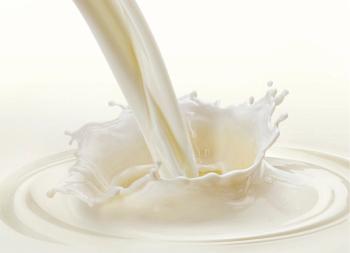
Replicating animal fat is key for plant-based meat and dairy products: Natural Products Expo West report
At Expo West, Cargill talked about its new partnership with Cubiq Foods, whose “smarter” fat technology is taking plant-based meat and dairy alternatives to the next level.
A lot has been said about which plant-based proteins are best for creating meat and dairy alternatives. But what about fat? It’s a key consideration of how successfully plant-based products will be able to mimic their animal-based counterparts. Fat affects mouthfeel, taste, and texture. Plant-food developers are increasingly thinking about what the best plant-based fat replacers are. At March’s Natural Products Expo West trade show, representatives from Cargill (Minneapolis) discussed the company’s
Cubiq Foods’ debut brand is its GoDrop “smart fat” ingredient line. “It’s a structured emulsion that has the functionality that mimics animal fat, so it gives that functionality, the mouthfeel, the taste, the texture, as well as an improved nutritional profile because it can reduce the total fat, saturated fat, and calorie content,” explained Jana Mauck, marketing manager, Cargill Global Edible Oil Solutions, North America, at Expo West. As a partner of Cubiq, Cargill is now offering its own customers GoDrop to include in their plant-based formulations.
Previously, Mauck said, the best alternative to animal fat was probably coconut oil, but coconut oil “just doesn’t deliver” and match animal fat’s functionality like GoDrop does. Neither do other stand-ins like sunflower, canola, or corn oil.
For instance, she said, a fat-replacement ingredient needs to remain effective throughout a product’s shelf life, including going through various cycles, including the freezing process, being thawed, then being cooked.
“This is what’s unique about GoDrop,” she said. “It stays and behaves as animal fat through all those phases. You can otherwise make a structured emulsion that only works when you mix things up, or only works similar to something when you cook it, but GoDrop works as the animal fat in every single step. As a result, when you make a product with GoDrop, when you’re replacing animal fat or replacing coconut oil, you don’t need to incur extra steps or change something in your product. You can just take GoDrop and replace fat and start making your product.”
The GoDrop line currently includes four products, which differ in texture and firmness depending on an application's need. “It depends on what people would like to use it for,” said Diliara Iassonova, innovation architect, Cargill. “Some of them contain gums as hydrocolloids. Some of them contain konjac fiber.”
Consumer testing already showed how GoDrop stood out over previous plant-based fat replacers. The company fed a plant-based burger made with GoDrop to a test panel. “We found that consumers found it a lot juicier compared to the control,” said Mauck.
GoDrop now enhances Cargill’s toolbox for the plant-foods space, which also includes pea protein and texturizers. Iassonova added: “If we’re talking about alternative dairy, as of right now almost the whole category is basically occupied by coconut oil. We believe that will change. The next trend will not be coconut. If you look back a few years ago, plant-based meat was almost 100% coconut oil. Then they shifted to blends, and then they introduced more liquid oils, and the reason is because coconut oil has 91% saturated fat. Functionally, coconut oil is not an exact 1:1 match with animal fat.”
Newsletter
From ingredient science to consumer trends, get the intel you need to stay competitive in the nutrition space—subscribe now to Nutritional Outlook.


